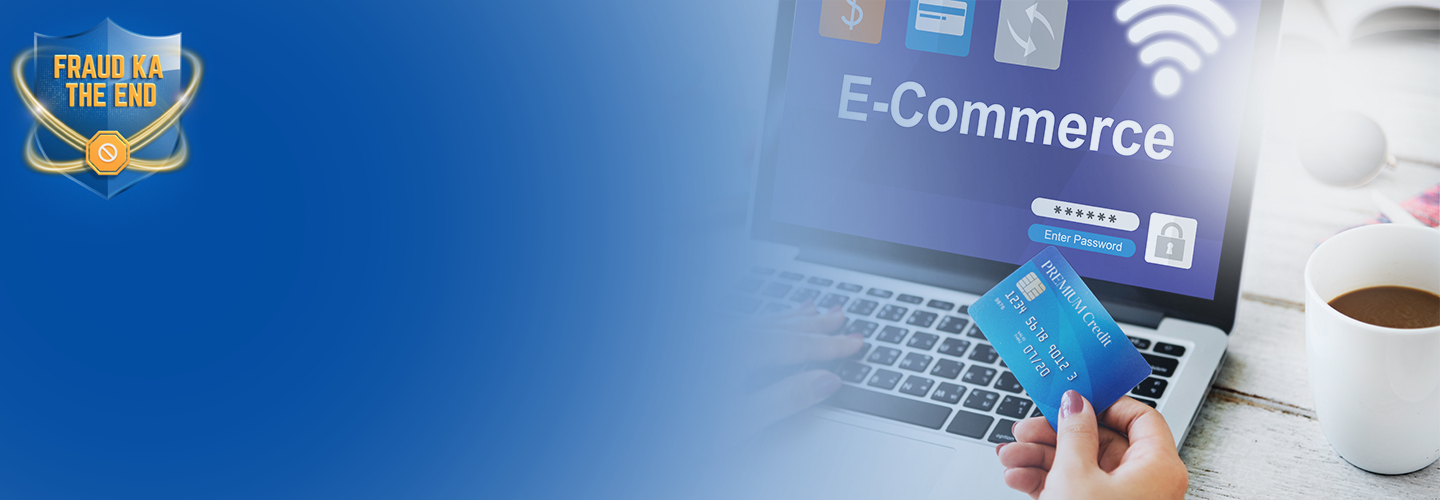Online shopping has revolutionised how we buy everything, from daily necessities to luxury items. It offers the convenience of easy price comparisons, great deals and products delivered directly to your doorstep. However, alongside these advantages comes the responsibility of protecting your personal and financial information.
Cybercriminals are constantly evolving their tactics, making it essential to prioritise safety. Continue reading this comprehensive blog as we share the top 9 cyber security tips to ensure your online shopping experience remains secure.
Importance of Online Safety While Shopping Online

Shopping online requires you to provide personal and financial information, making it imperative to adopt safety measures. Here is why online safety matters:
1. Safe Financial Transactions: Online payments are susceptible to fraud. Using secure methods helps protect your financial information and prevents unauthorised transactions.
2. Maintaining Reputation: Your digital presence, including social media activity, can influence your personal and professional reputation. Online safety ensures that your information is not misused or exposed.
3. Prevention of Identity Theft: Phishing, malware, and hacking are common methods cybercriminals use to steal identities. Adopting safe online practices and cybersecurity tips reduces identity theft risk.
4. Protecting Children Online: Children are particularly vulnerable to cyber threats. Implementing robust safety measures safeguards them from harmful content and individuals.
5. Protection of Personal Information: Online platforms often require sensitive information such as your name, address, and payment details. Ensuring safety prevents unauthorised access and misuse of your data.
Top 9 Useful Tips to Follow For Safe Online Shopping
To ensure secure online shopping, follow these practical cybersecurity tips:
1. Ensure to Shop from Secure Sites
Follow the e-commerce tip of sticking to reputable and secure websites only. Look for “HTTPS” in the address bar on your browser and a padlock icon, indicating the site is safe. Avoid sites with misspellings or unfamiliar domain extensions, as these could be phishing attempts. Beware of deals that seem too good to be true on unfamiliar websites; they might be traps designed to steal your information.
2. Stay Private While Using Public Wi-Fi
While public Wi-Fi networks are convenient, they often need more security. If you must shop using public Wi-Fi, connect only to trusted networks at recognised locations. For added protection, use a Virtual Private Network (VPN) to keep your data encrypted and safe from prying eyes.
3. Use Strong Passwords
Create complex and strong passwords that are hard to guess. Avoid using the same password for each account and easily guessed combinations like “123456”, “password”, your name or any combinations of these words. Some antivirus and internet security tools include password management features for added convenience.
4. Do Not Click on Suspicious Links
Being wary of links in emails or social media posts promising unbelievable deals. These could lead to phishing websites or malware downloads. If an offer tempts you, research it first or visit the retailer’s official website instead of clicking on an unknown link.
5. Put Devices on Lockdown
Ensure that all devices you use for shopping have up-to-date security software. Use passcodes, PINs, or biometric locks on smartphones and tablets. Always log out of shopping or banking sites after completing transactions and avoid letting your devices save sensitive information like usernames or passwords.
6. Outsmart Email Scams
Scammers often send fraudulent emails claiming to be retailers and financial institutions. These messages may ask you to confirm a purchase or update your account details. Avoid clicking on links in such emails. Instead, navigate directly to the retailer's website or contact the company through official channels to verify the message’s authenticity.
7. Use Secure Networks
Shopping on an unsecured or public network increases the risk of your information being intercepted by hackers. Use a secure and encrypted network for online transactions. Enable your system firewall, and regularly update your network system firmware for enhanced security.
When using public networks, avoid making financial transactions, as you cannot guarantee the safety of the connection.
8. Be Smart About Shopping Apps
Download shopping apps from trusted and registered sources. Before installing an app, check its reviews, ratings, and permissions. If an app requests unnecessary access to your contacts or other data, consider it a red flag and avoid installing it.
9. Use a Dedicated Email Address
Creating an email address for online shopping can help you manage your inbox and identify potential spam or phishing emails. If you receive suspicious messages on your primary email account, it is likely an attempt to scam you. A dedicated email reduces this risk and keeps your primary inbox clutter-free.
Also Read - Online Guide to Financial Fraud Prevention and Mobile Security
To Conclude
Online shopping offers unmatched convenience, but staying vigilant against cyber threats is crucial. By shopping through secured websites, using secured networks, being wary of suspicious links, etc., you can enjoy the benefits of online shopping without compromising your safety. Use our tips and tricks and protect your devices with robust security measures.
Staying informed and proactive is your best defence against cybercrime. Prioritise your online safety to shop confidently and securely.
